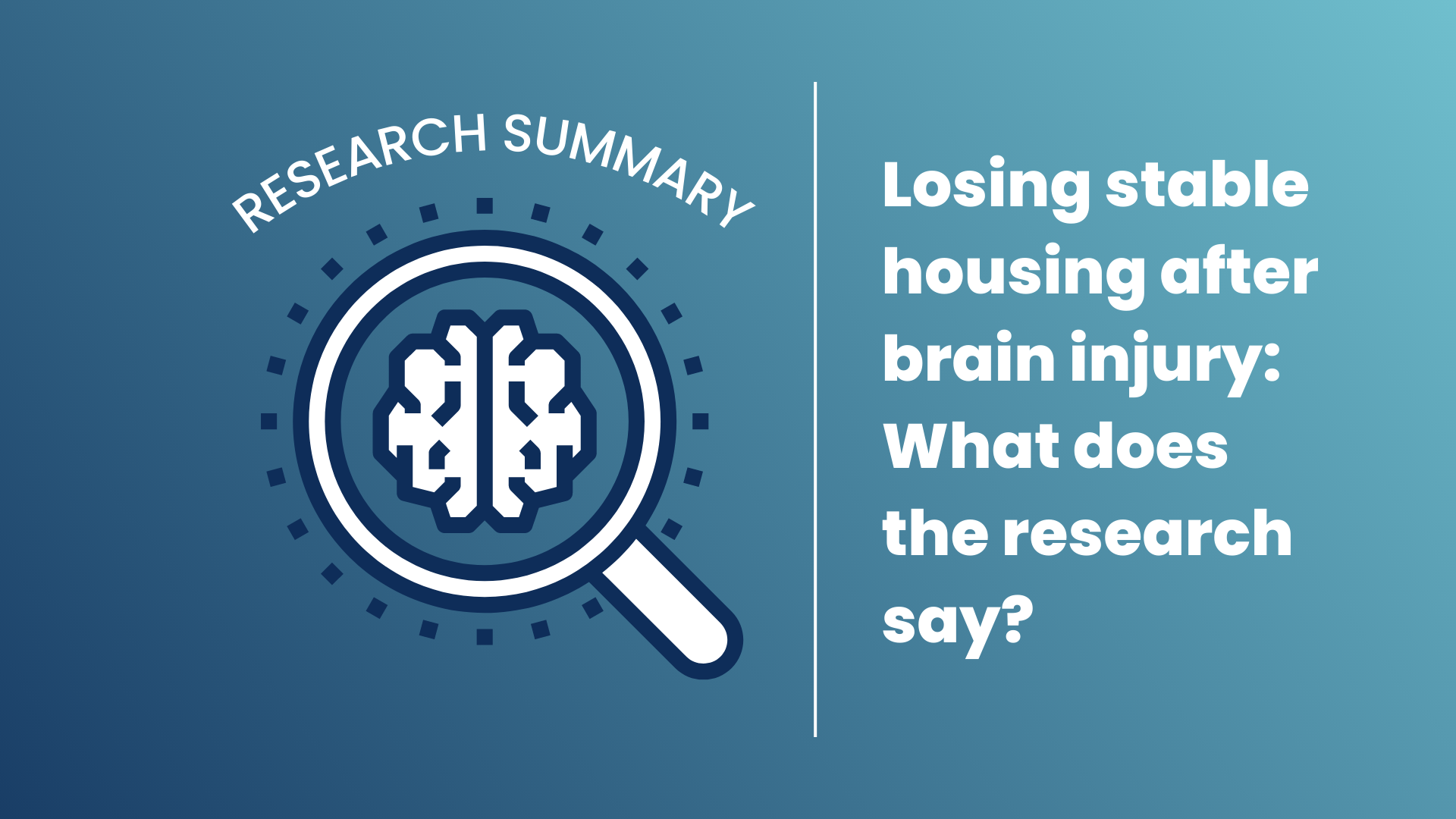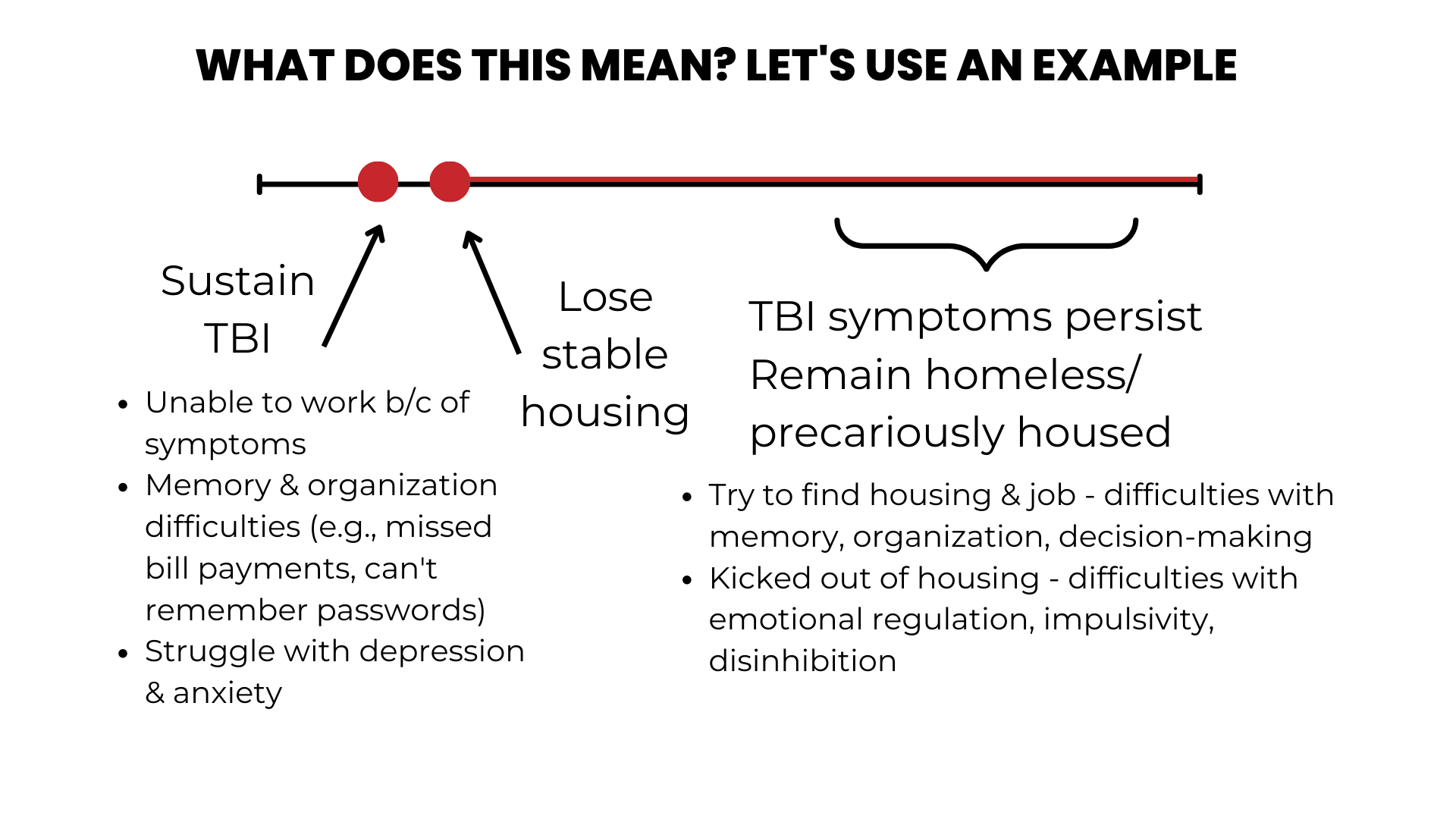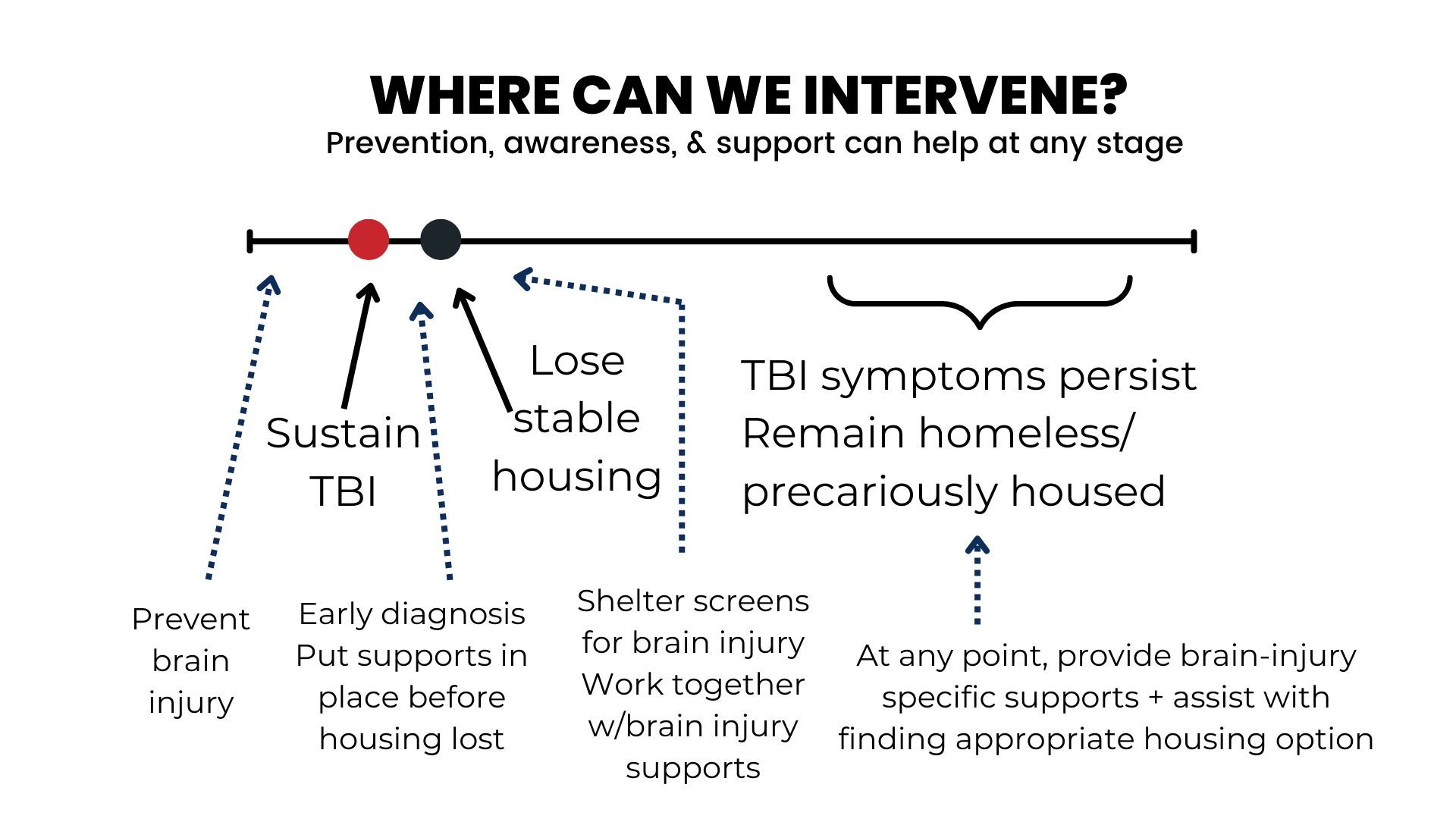
A Little Goes A Long Way
Your gift today is an investment in BrainTrust services that improve the lives of those with brain injury.
Donate Today


A multidisciplinary research team from Vancouver, BC published a research study in The Canadian Journal of Psychiatry exploring the relationship between brain injury and losing stable housing. Studies like this show that brain injury should be a part of the housing crisis conversation. We need to work together to ensure individuals do not fall through the cracks after sustaining a brain injury.
> 200,000 people experience homelessness annually in Canada
This study used the terms “homeless” and “precariously housed”
Over half of individuals experiencing homelessness have a traumatic brain injury (TBI)
Research shows that most people sustain their first TBI before becoming homeless
Researchers from Vancouver, BC, Canada were interested in understanding the lifetime history of TBI in homeless and precariously housed individuals
They predicted that:
(1) More severe TBI would occur closer to the initial loss of stable housing
(2) TBI closer in time to the initial loss of stable housing would be associated with a longer duration of homelessness
Hotel Study
What did they measure?
Lifetime history of TBI
Lifetime duration of homelessness or precarious housing (# days)
82% reported at least 1 lifetime TBI
Most common causes of TBI were assault (in men) and physical abuse (in women)
Age when initial loss of stable housing occurred
Moderate-severe vs. mild TBI
58% sustained first TBI before becoming homeless
TBI closer in time to initial loss of stable housing was associated with longer lifetime duration of homelessness/precarious housing
Prevalence of TBI (including moderate-severe TBI) is higher in homeless/precariously housed populations than the general population
Factors such as age and gender need to be considered to provide customized support for homeless/precariously housed individuals with brain injury
People who are newly homeless/precariously housed may be dealing with brain injury impacts


Source:
Stubbs, J. L., Thornton, A. E., Gicas, K. M., O’Connor, T. A., Livingston, E. M., Lu, H. Y., … & Panenka, W. J. (2022). Characterizing traumatic brain injury and its association with losing stable housing in a community-based sample. The Canadian Journal of Psychiatry, 67(3), 207-215.
doi: 10.1177/07067437211000665
Join us for Knowledge Translation Tuesday, where we summarize a recently published research study to give you current, evidence-based brain injury information.
Related research summaries: